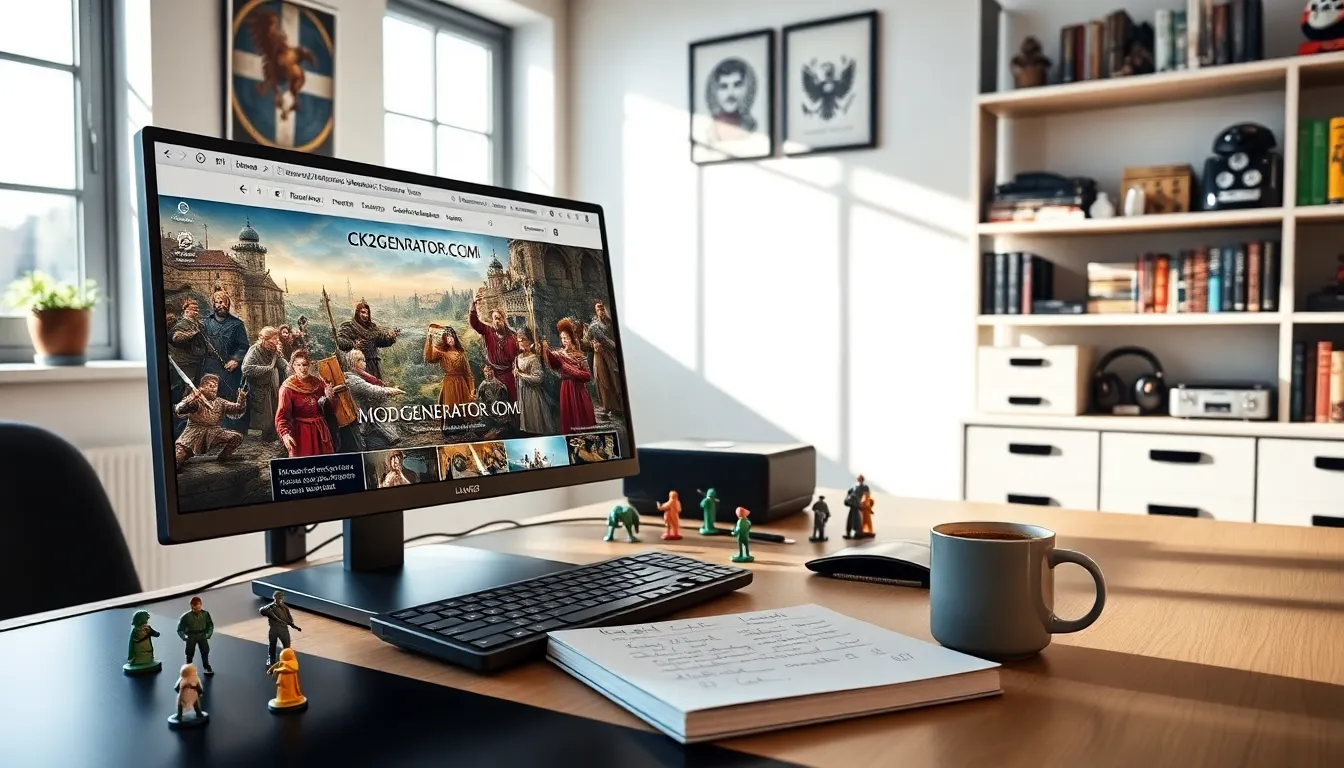Politics touches every aspect of our lives, whether we like it or not. It’s the messy playground where ideas clash, power dynamics unfold, and, let’s be honest, sometimes it feels like a never-ending soap opera. But what does ‘political’ truly mean? By diving into the core concepts of politics, we can arm ourselves with the knowledge to navigate this complex world. So, buckle up, understanding these definitions may reveal more than just politics: it might just empower you in everyday life.
Table of Contents
ToggleWhat Is Politics?

Politics is the art and science of governing, often described as the means by which groups of people make collective decisions. It transcends simple governance: it weaves through the fabric of society, touching culture, economics, and even daily interpersonal interactions. At its core, politics shapes power dynamics, determining who gets what, when, and how.
In a way, one could think of politics as a game, a game where the stakes are often high, and the players are not just politicians but also citizens engaging in discussions, voting, and advocating for change. The rules of this game aren’t static: they evolve as societies grow and adapt, influenced by a mix of tradition, ideology, and even the latest viral meme.
Historical Context of Political Thought
Exploring the historical backdrop of political thought reveals a rich tapestry of ideas. Ancient philosophers like Plato and Aristotle laid the foundation for understanding what it means to govern and be governed. Their thoughts on ethics, justice, and the role of the state continue to resonate today.
Fast forward to the Renaissance and Enlightenment eras, where thinkers like Machiavelli, Hobbes, and Locke questioned systems of power and individual rights. Their legacies highlight how different contexts shaped political ideologies, leading to revolutions that redefined nations. Understanding these historical points is essential: they provide clarity on how contemporary politics took shape, reflecting both continuity and change.
Key Components of Political Definitions
Defining what is political often requires breaking it down into several key components. This includes understanding various political systems, the ideologies that support them, and the influence of governance.
Types of Political Systems
Political systems can be categorized broadly into democracies, authoritarian regimes, and totalitarian states. Each system operates on distinct principles, impacting citizens’ freedoms and government accountability.
Democracy
Democracy, often hailed as the gold standard, emphasizes the role of the electorate. Through voting and representation, citizens have a voice, shaping their governments based on collective will.
Authoritarianism
In stark contrast, authoritarianism centralizes power in a single authority or ruling party, often curtailing civil liberties. Political dissent is typically suppressed, raising questions about individual rights.
Totalitarianism
Totalitarianism takes authoritarianism a step further. It seeks to control all aspects of public and private life, leaving little room for personal autonomy. The extreme measures employed in totalitarian states can evoke fear but also prompt resistance that fuels movements for freedom.
The Role of Governance in Politics
Governance plays a crucial role in shaping political landscapes. It encompasses the frameworks, processes, and institutions through which authority is exercised.
Political Theories and Ideologies
Understanding governance also means grappling with various political theories and ideologies, which offer foundational perspectives on organizing society.
Liberalism
Liberalism champions individual freedoms, advocating for civil rights and economic liberties. It emphasizes the role of government in protecting these rights while allowing for a market-driven economy.
Conservatism
Conversely, conservatism focuses on tradition and societal stability, prioritizing gradual change over radical reforms. It emphasizes values like family, religion, and national identity as cornerstones of society.
Socialism and Communism
Socialism and communism present alternative views that critique capitalism. These ideologies advocate for social ownership of production and aim to reduce inequality.
While socialism often exists within democratic frameworks, focusing on welfare states and regulated markets, communism envisions a classless society achieved through revolutionary means. Both ideologies prompt ongoing debates about fairness, equity, and the role of the state in economic affairs.
The Importance of Political Engagement
In a world where political decisions impact our lives daily, engagement becomes paramount. It’s not enough to sit back and let others decide: active participation fosters accountability and is an essential component of a healthy democracy.
From casting a vote to advocating for local issues, citizens play a vital role in shaping their communities. Engaging politically cultivates informed citizens, encourages dialogue, and fosters a sense of belonging. Discussions about policy and governance are not just for academics: they are integral to everyone’s life.





